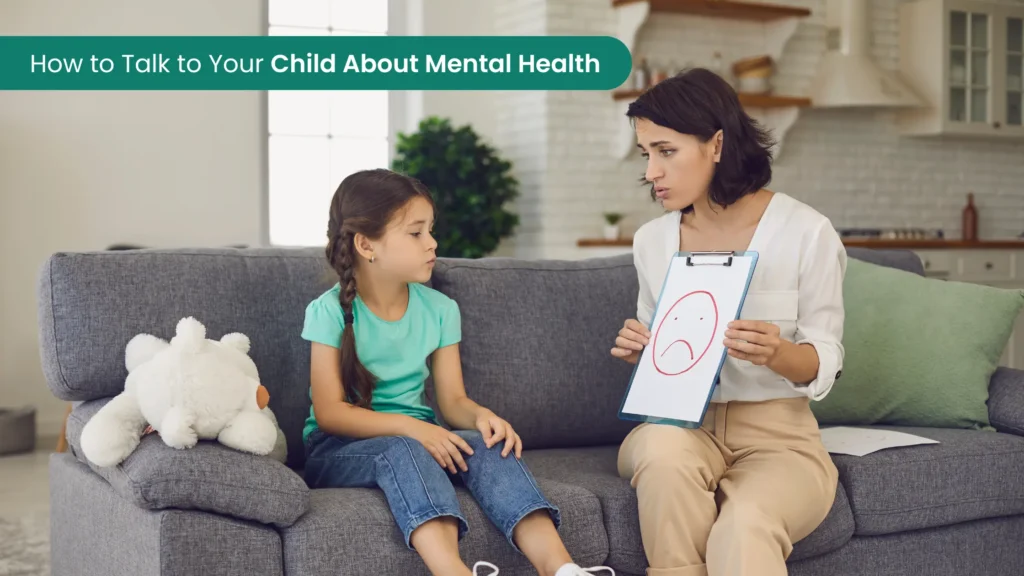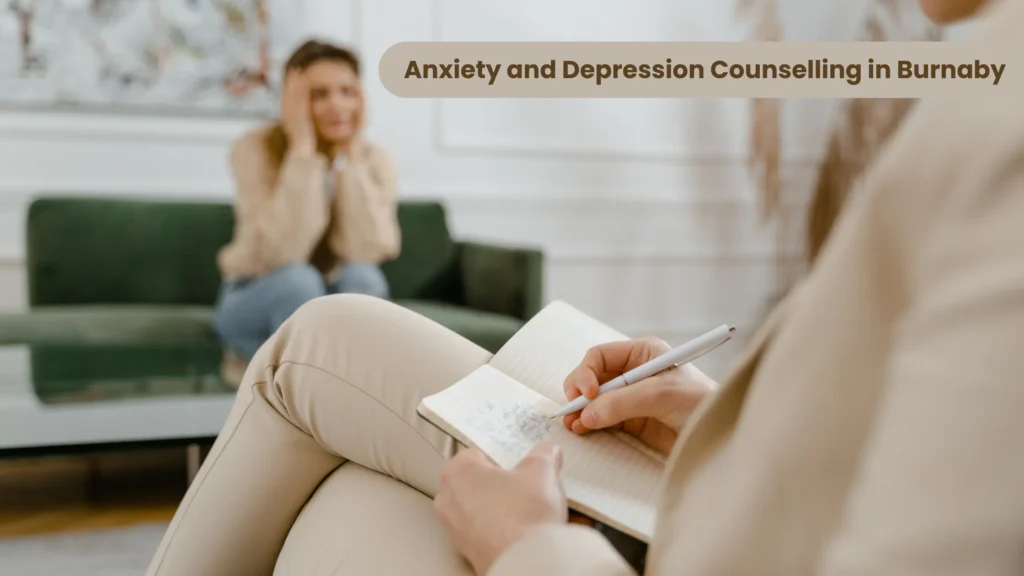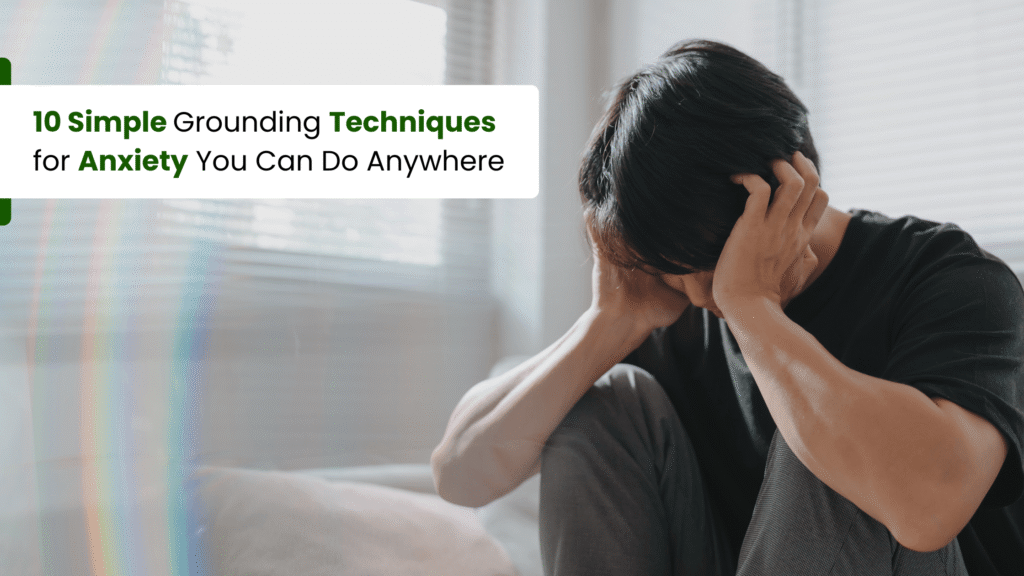Let us be real—parenting isn’t just about making sure your kid’s got dinner on the table and a roof over their head. Children have a wide range of emotions and feelings that need care, gentle care. They need emotional support in today’s times like never before and it is in these times when it has become vital to talk to your child about their mental health. Before talking about their mental health and offering emotional support, it is essential to know how to recognise if your child is struggling mentally. This blog shall help you understand all the aspects of discussing mental health with a child.
Before we proceed, let us understand:
Why Emotional Support Matters
– Kids today are facing way more pressure than we did—school, social media, you name it.
-Almost in all cases, they won’t just come out and say what’s bugging them. This is a tight spot for the parents.
– For every parent, it is a bit of a challenge to know how to talk to their child about mental health. But once you have learnt the trade secrets, it is a modern parenting superpower.
Creating a Safe Space for Conversation
Open up the door to honest chats.
The best is to show your kid that you are with them and they can talk to you about anything without any judgment or flipping out.
Once they know they are safe, they will share way more than you can imagine.
Get Started with RealEyes Counselling
At RealEyes Counselling, we believe in starting these talks early—it really can help avoid bigger problems later.
Not sure how to explain anxiety to your little one? Or maybe you’re searching for tips for starting conversations about depression with teens? Don’t sweat it.
This guide is here to walk you through practical, doable ways to support your kid, for real.
Why Conversations About Mental Health Matter & How To Talk To Children About Emotions
The mind is just as important as the body. A child can appear great on the outside and still be feeling miserable inside. It is essential for parents to know how to recognize if child is struggling mentally. Check the following:
- Be alert for mood changes – these may be sudden sadness, irritability, or withdrawal.
- Be aware of behavior changes – this could be a loss of interest in activities, a drop in school work performance.
- Be aware of physical symptoms – change in sleep, appetite, or mysterious aches.
- Be aware of social interactions – Avoiding friends, isolation, or conflicts with peers.
- Be sure to listen! – Kids can drop hints sometimes, by what they say about themselves.
- Trust your gut – If something feels “off,” it’s worth checking in.
The earlier parents or teachers recognise, the better it is for comprehensive emotional and mental growth of the child which leads to a conducive upbringing.
For parents on how to talk to children about emotions, it is essential that they learn that every age group requires a different approach. For younger children, go with easy breezy talks about how they are feeling. Go for deeper but not stressful discussions with teenagers. Please note there are no hard and fast rules on how to talk to children about emotions and feelings.
How to Explain Anxiety and Depression to Children
Life has its own ways to teach us. But some of its lessons can be difficult, which are about anxiety and depression. Many children experience it, and it becomes hard for the parents to explain anxiety to a child or how to explain depression to a child in ways they can understand. Here are some tried and tested approaches on what parents should say to kids about anxiety:
For 5-year-old kids:
Tips on how to talk to your 5-year-old about feelings of anxiety
- Keep it as simple as you can. This age bracket understands what is simple.
- Try saying:
- Hey, sometimes your brain gets worried, just like your tummy does before school. That’s called anxiety.”
- Use the everyday stuff they get. Skip the big words.
For School-Age Kids
- Connect it to things they know.
- Example:
- You know how, when it’s cloudy for days, and you don’t want to play, even when the sun comes out? That’s kind of what depression feels like.
- Weather talk works—they get it.
For Teenagers: How to talk to your teenager about mental health
- The best parents can do is be real and honest. You might not believe us, but the teenagers appreciate it.
- Try statements like
- “Look, a lot of people feel anxious or down sometimes, even we as your parents have felt low and anxious. You should not think that something’s wrong with you; it just means your mind needs a little extra care.”
- We are saying it again, skip the sugarcoating for the best results.
Bottom line:
Don’t just pretend to be their friends, be their friends in the real sense in this phase of their life. Kids are smart, and they know when you’re being real with them.
Tips On How to make children comfortable talking about emotions
It seems to be the routine question for parents on talking to kids about mental health: how to initiate the topic of mental health and emotions? We hereby bring to our readers some strategies that can help schools and parents support children’s mental health. It has become the need of the hour to discuss mental health with children. The chaos and peer pressure around them need to be addressed as a priority but at the same time gently.
Talking to kids about mental health just became easier:
- Start Early—Keep It Chill
– Don’t wait for drama to break out. Slip emotions into daily convos—nothing fancy.
– At dinner, maybe just ask, “What was awesome about your day, and what totally sucked?”
- Use Stories and Examples
Seriously, stories work magic. Grab a book, a movie, or your own (possibly embarrassing) story.
It’s way easier than giving a lecture—kids actually listen.
- Encourage Expression
– Let them get creative: draw, write, act out something silly.
– Not everyone wants to talk. Give them options, zero judgment.
- Be a Good Listener
– Sometimes, just zip it and listen.
– No need to fix everything right away.
– A little silence can say a lot.
- Model Healthy Behaviors
You may take the lead by addressing your own tough days and how you got through them. Remember, maintain a gentle tone in addressing your tough days, so that you do not scare them; the intent is to create a space for them to share. Trust us, this will offer them a window to speak about their tough days, too.
Talking to Your Kids About Anxiety and Depression, and the best ways to support children’s mental health at home
Young minds, including teenagers, need real talk. The best way to support children’s mental health at home is by avoiding sugarcoated nonsense about mental health. Here’s the straight talk tips with them:
- Anxiety and depression? Way more normal than you’d think. Not some rare unicorn stuff.
- Asking for help? Hard as hell. That’s what makes it gutsy.
What Are the Right Things To Say?
For All Ages (especially the young ones who are still not teens)
- “Honestly, tons of people deal with this. You can get help—promise.”
- “Feeling anxious or just down? Doesn’t mean you’re ‘messed up’ or anything.”
- “Reaching out? That’s brave. Seriously, big respect for even thinking about it.”
For Teenagers (Because, wow, teens)
Ease In:
“Hey, it seems you are a bit off lately. Want to talk?” (No need to play Sherlock Holmes, just be chill.)
No Pressure:
“I’m around if you wanna chat. Totally your call.” (Don’t force it, or they’ll just clam up.)
Therapy’s Not Weird:
“Do you want to see a counselor? It’s the same as going to the doctor when you’re sick. Super normal.”
The Real Game
This advice is for the close family: don’t push too much. Keep it real, don’t freak out, and let them know you’re around. Just don’t poke and choke them, trust us, they will find away to reach out to you.
Children spend a lot of time in schools together, and parents can support their children’s mental health. Take our word, when teachers, counselors, and parents roll up their sleeves and actually work together, it’s like assembling the Avengers for mental health. You spot the subtle stuff—a kid’s extra quiet, someone’s got that faraway look—you catch it before it becomes a whole crisis. And man, ditch the old-school “don’t talk about your feelings” attitude. Let’s get real: classrooms should be places where kids can actually figure out what’s going on in their heads, not just memorize the periodic table. Those programs that teach kids to put words to their feelings and handle life’s chaos? Pure gold.
Please understand, children usually, in the first go, don’t want to talk about their feelings. It is for the parents and schools to recognize if their child is struggling mentally. Early recognition gives parents and teachers the chance to provide support before the problem grows.
Conclusion
In today’s time, it is no longer an option on how to talk to your child about mental health. It has become imperative on the part of parents and teachers to learn the skill of talking to kids about mental health.
At RealEyes Counselling, we are all about bringing in the best ways to support children’s mental health at home. The key is love and immense patience. When the parents already know the best ways to support children’s mental health at home and in learning environments, the results are pure gold, and society gets a generation that is emotionally and mentally strong and fit.
Please remember every conversation matters. The more we discuss mental health with a child, the more the child grows with the feeling that he has the support of his loved ones.



